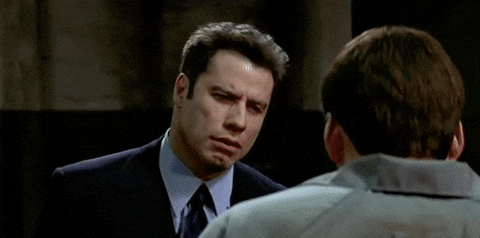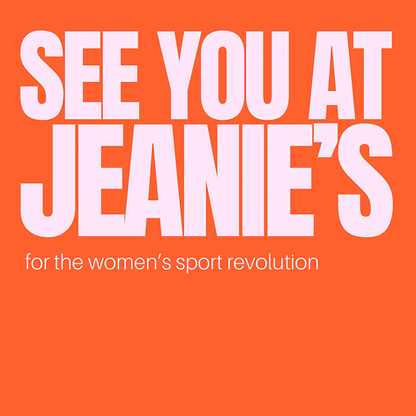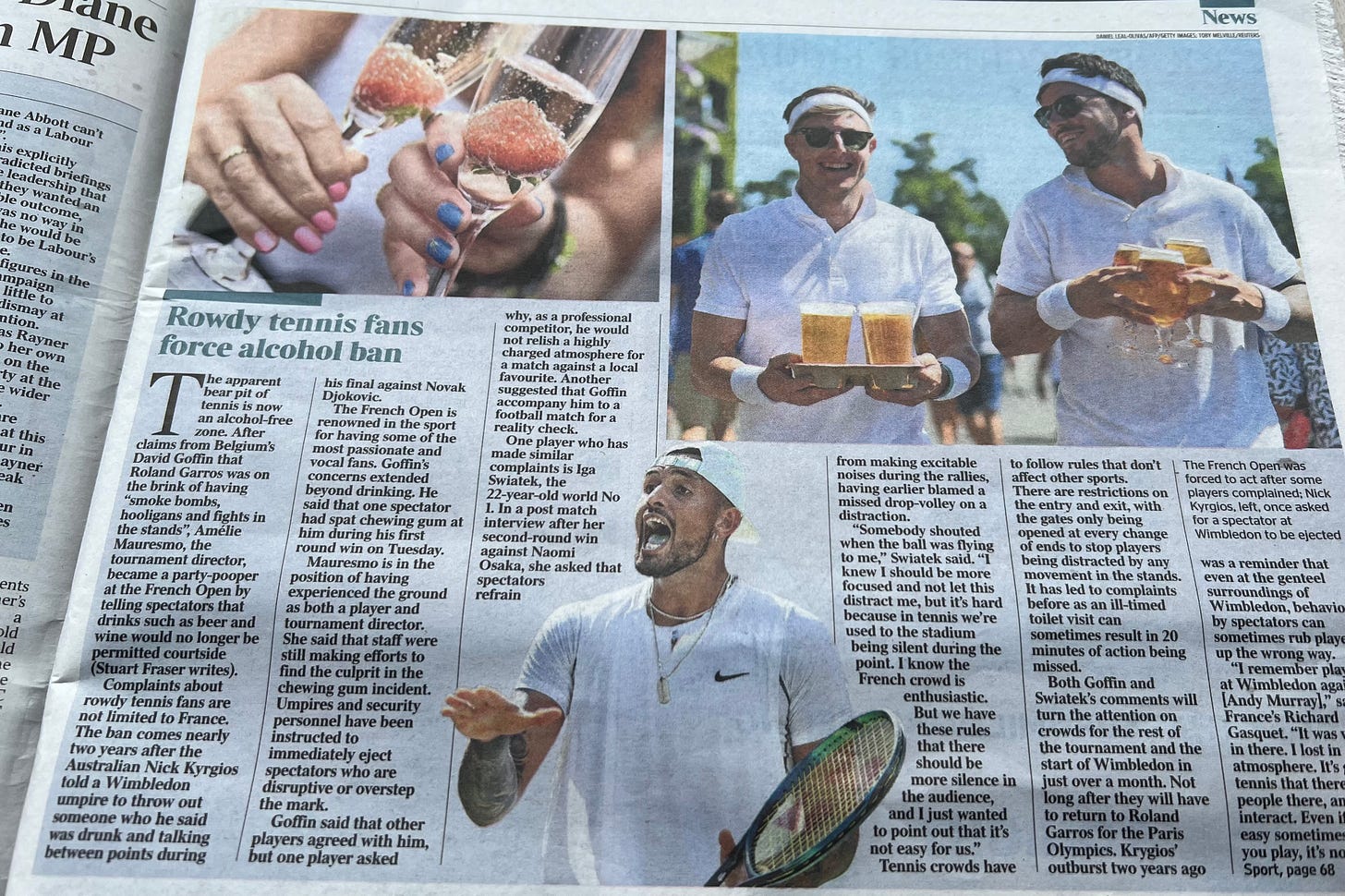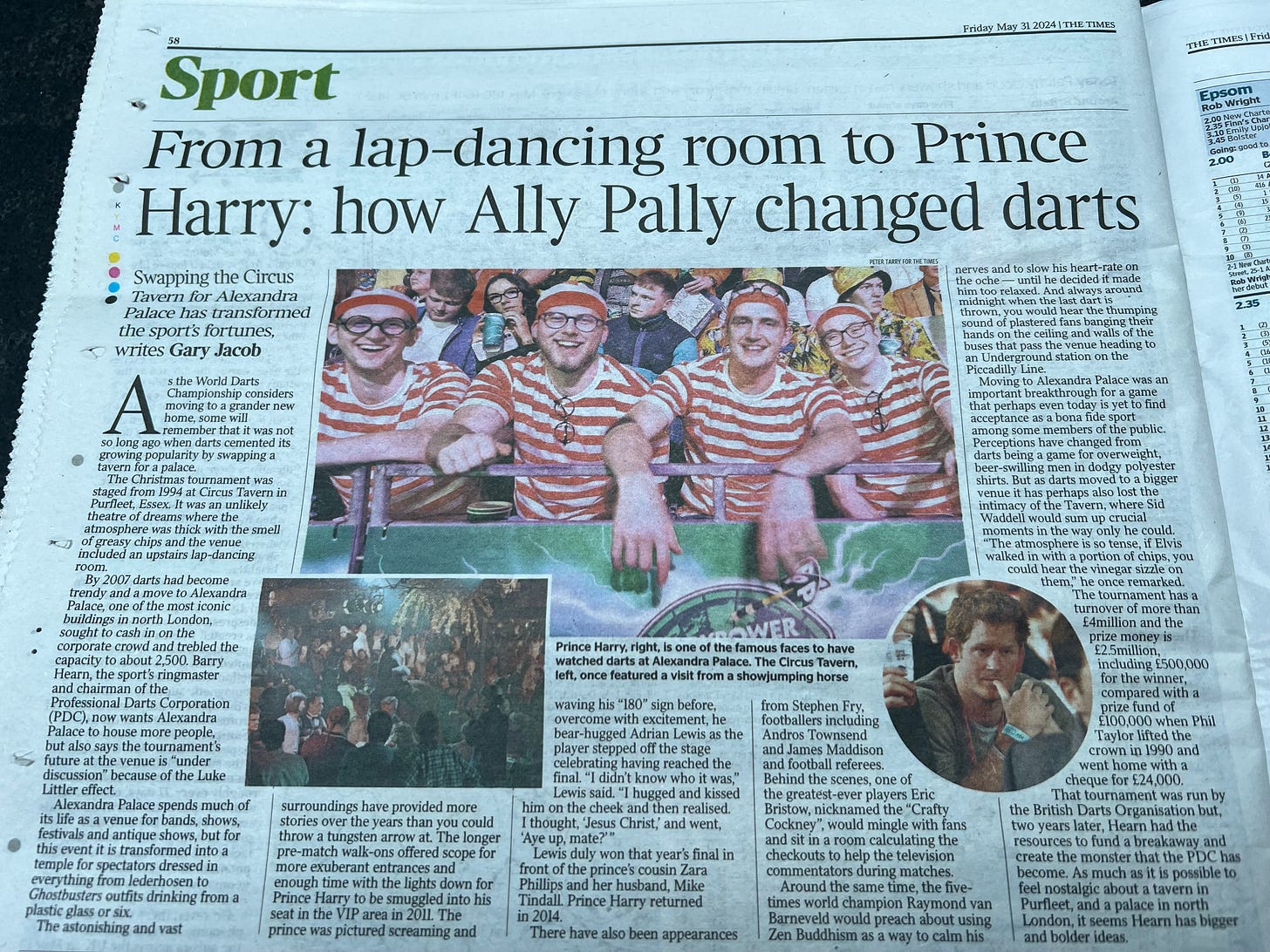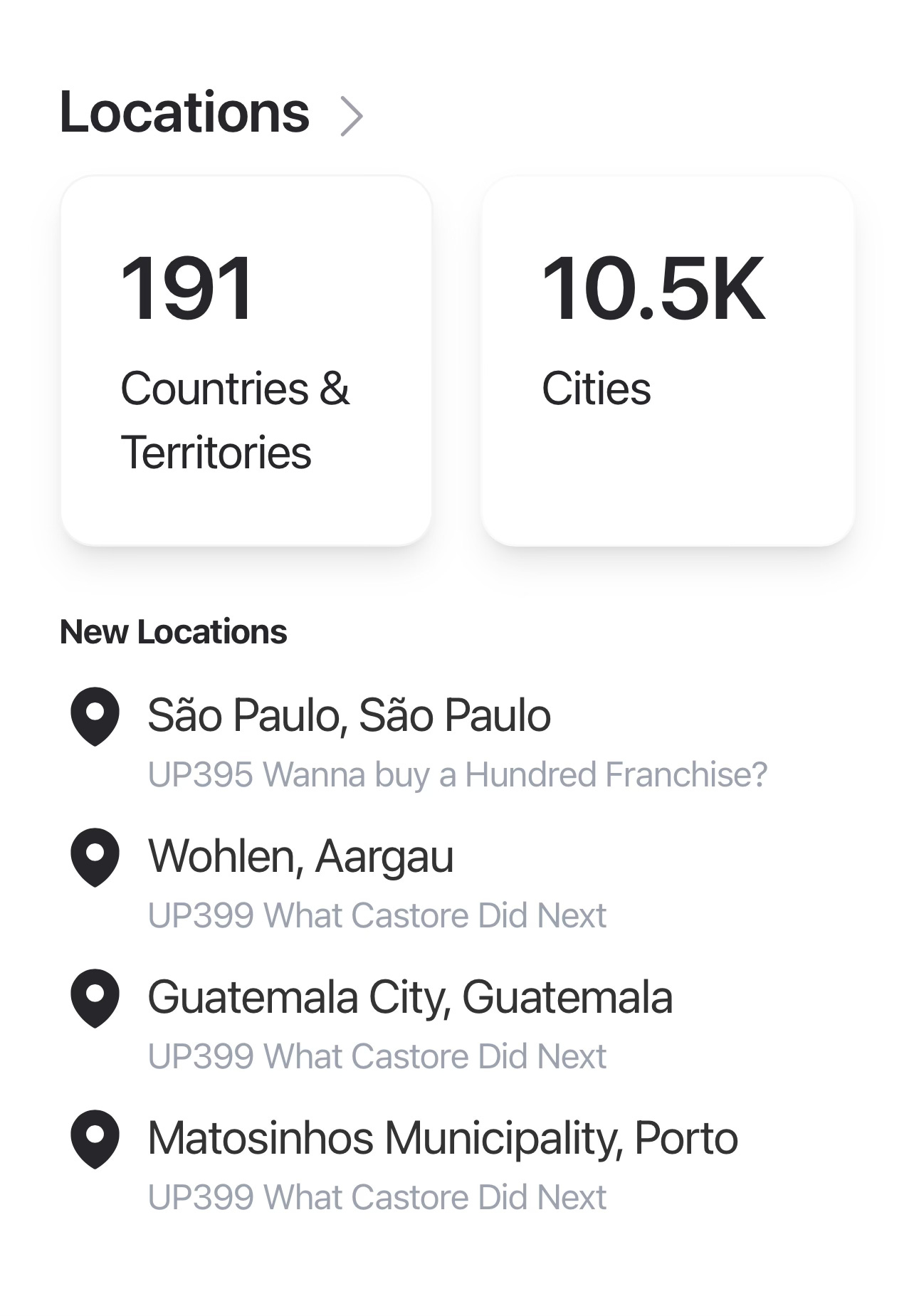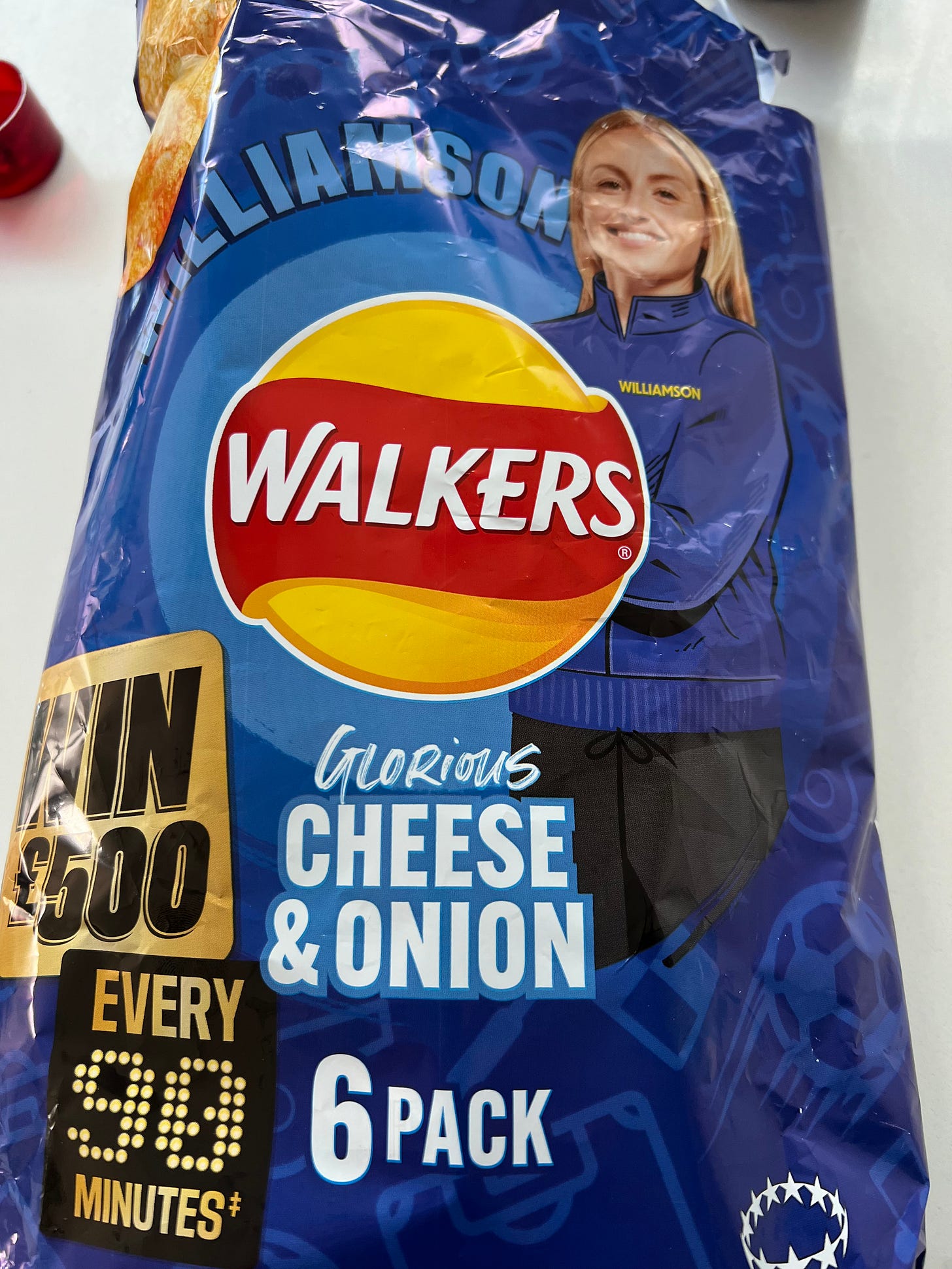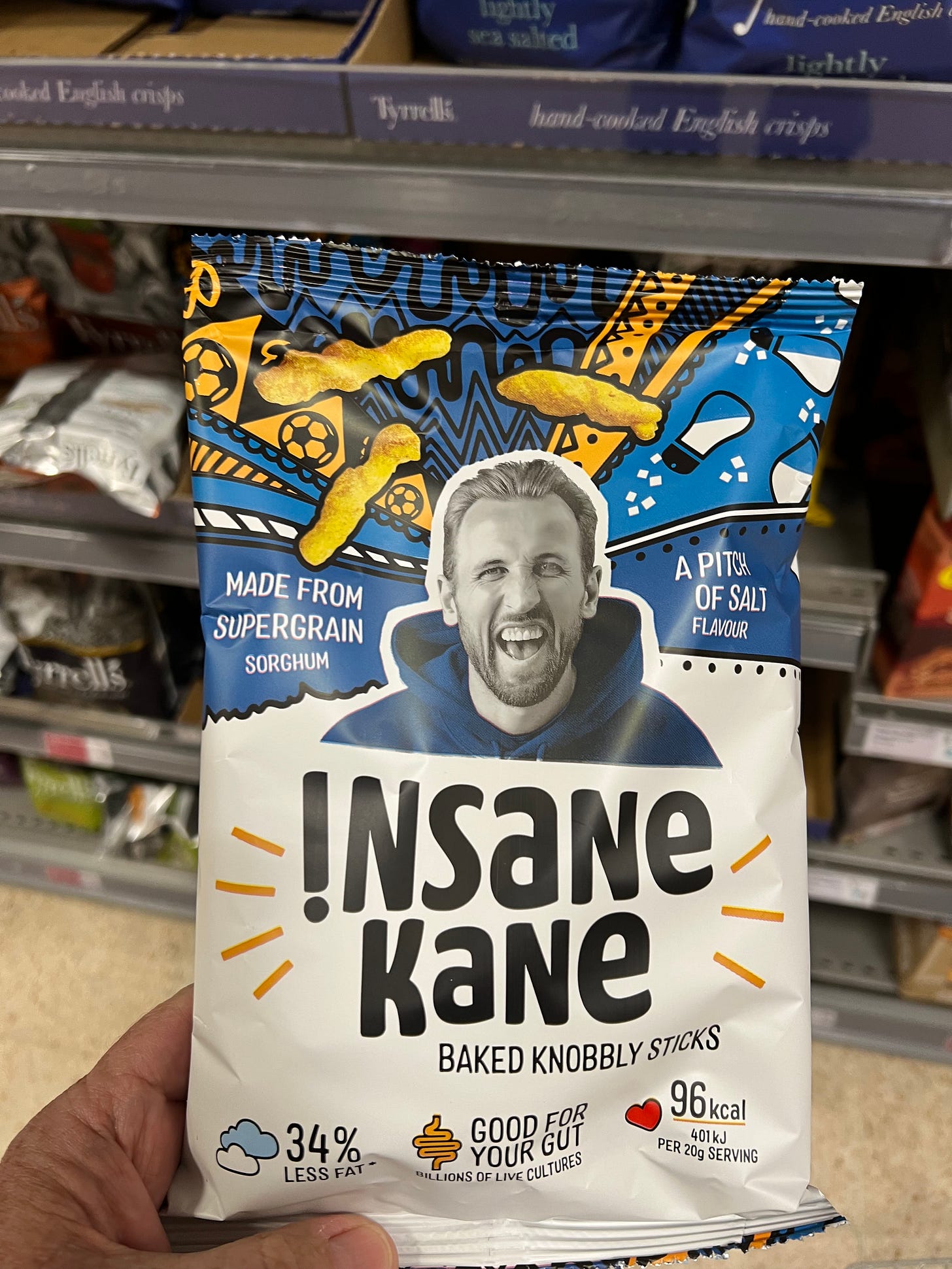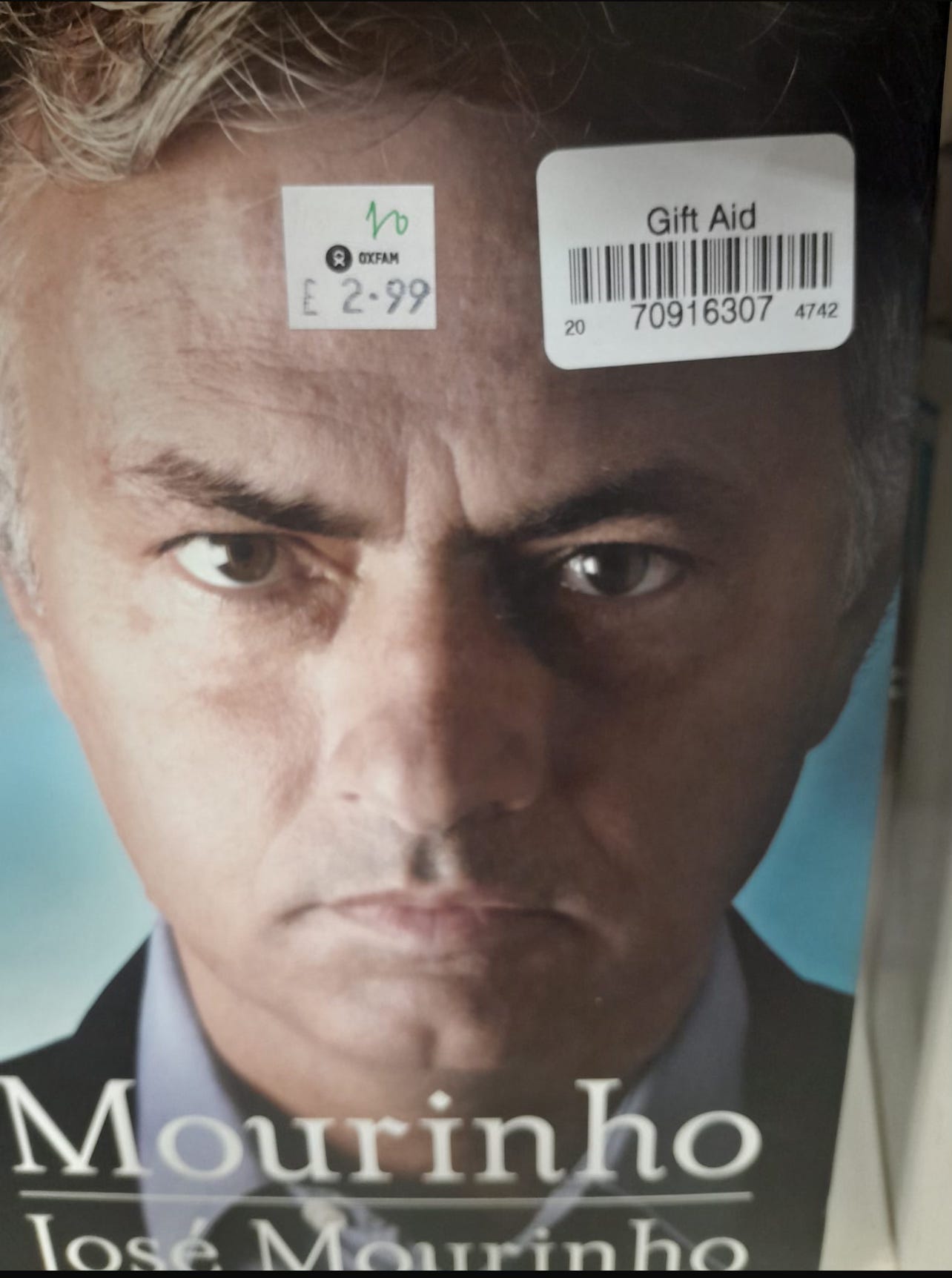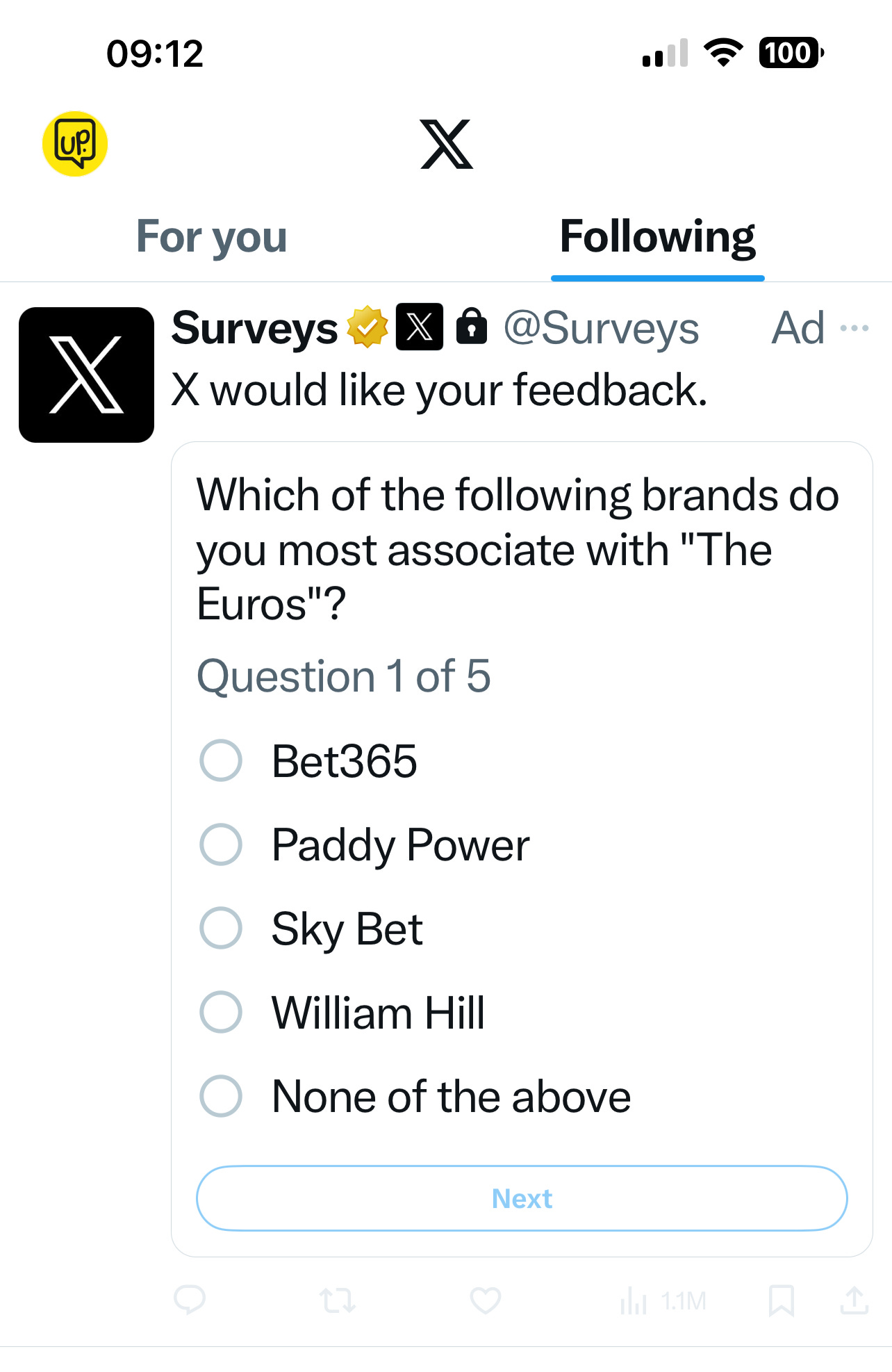D2C WTF; Beahon v Plank; The Booze Bundle; The wrong type of drinkers; WiF's damning statistics; Reading, between the lines; São Paulo loves UP; The Euros crisp aisle face off; Cut price Mourinho
Overthinking the sports business, for money
D2C WTF and the Plank Beahon Comparison
At some point in the noughties I met Kevin Plank, the founder of Under Armour.
Meeting Tom Beahon of Castore for this week’s podcast gave me similar vibes.
I mentioned this to Tom and wondered aloud about the comparisons between Castore and Plank’s UA story.
Beahon is a student of the sports market and got the reference, comparing the need for ‘obsession’ from founder entrepreneurs, and the sheer ‘audacity’ to attempt to attack the big dogs of Nike and Adidas.
Tom Beahon: Certainly in the early days, Under Armour did a phenomenal job of challenging the big guys. I'm 34 years old and it’s the first and only time in my life, hopefully, until Castore came along, that I can remember anyone having the audacity, that's what it felt like, you had the audacity to challenge the big two. And it was exciting. I was playing football at the time, was living and breathing the sports world and, and it was like, ‘Wow, this hasn't happened before’, Like, good on them, you always wanted them to be successful.
When I met Plank, he was well on the way to becoming a billionaire. The Beahon brothers’ shareholding in Castore is currently valued at £500m, after the most recent capital raise, via Raine Group, put the value of the business at nearly £1billion.
Plank’s journey since the noughties hasn’t been a straight line. There have been missteps and bad decisions along the way, including a massive bet on wearables and fitness apps.
But in a world of middle managers, go-betweens and no skin-in-the-game bureaucrats, it does you good to sample that just on the edge of sanity founder energy.
Two specific quotes from my conversation with Tom Beahon that I’ve been dwelling on.
They both counter the received wisdom of football clubs and other sports rights holders cutting out the middle man and going direct to fan. That trope, that runs through retail, merchandising and content, has morphed in to the dreaded ‘received industry wisdom’. Which I often think is code for groupthink.
D2C WTF?
The first quote questions what I call ‘Club as Amazon’.
Tom Beahon: I would say that almost all clubs would be better served financially from outsourcing retail, almost all clubs outside of the top six…and again, I use the term broadly because some people will take offence to that. And the reason for that is very simple, it's economic. If you're one of the top teams in the world and I'll use round numbers for ease, but if you can generate a hundred million sterling revenue from merchandise, which the top teams are kind of not far off that number, the upside from doing it yourself makes the investment worthwhile. Cause it costs a lot of money to invest in warehousing and customer service staff, running an e commerce platform, dealing with different currencies and languages, dealing with import and export tax duties. All of these things are expensive and there's a significant upfront investment required before you realize the benefit of that investment. For those top teams, that investment is worthwhile. They will get enough back to make that investment pay for itself. And then they keep all of that upside. For teams that don't do that level of revenue, the cost involved in maximizing it versus the upside they can probably generate.
File under: The rich get richer.
Club as Netflix
Tom Beahon: Whenever I hear teams make big grandiose statements about selling their content directly to fans and this stuff, I do often raise an eyebrow and I'm not sure I can think of too many examples - not to say it can never be done, I mean, as an entrepreneur, I'm always rooting for the guy that's trying to do something differently - but I can't think of many examples of where that's worked well.
I know with New Zealand rugby, Silver Lake made a not immaterial investment in those guys. And as I understand it, a big part of the thesis was selling content direct and cutting out third party broadcasters.
But I think that's really, really difficult and it will be a long journey before those investments start to pay dividends.
I like the phrase ‘a not immaterial investment’.
It was actually £100million for 8.5% of the All Blacks.
Hear our next episode of Other People’s Money next week.
Not entirely a coincidence, but it’s on private equity.
Open Doors vs The Reality of Being a Woman in Football
The numbers coming out of the latest Women in Football industry survey should shame everyone working in the industry today.
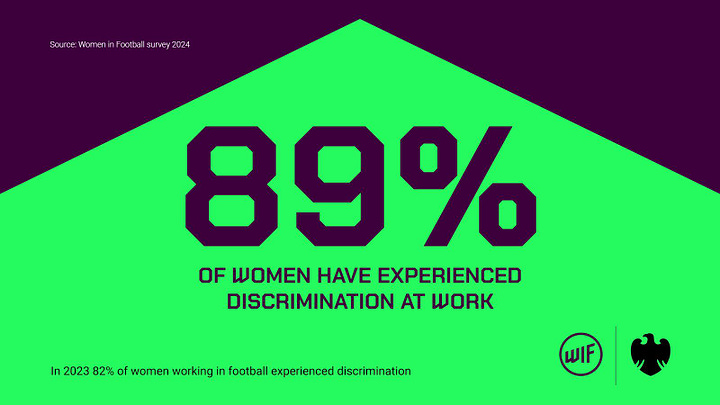
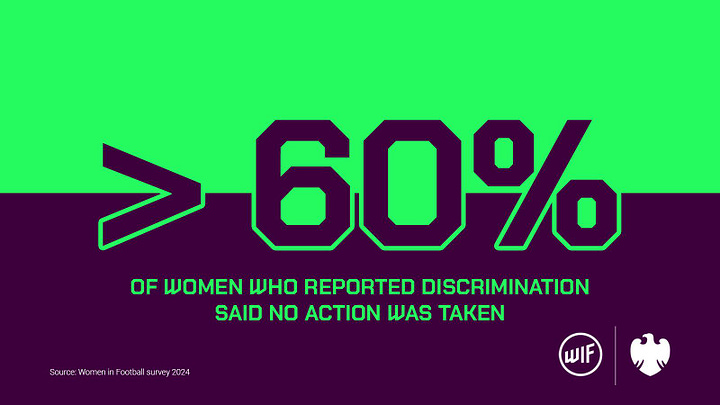
This is a very powerful Sky Sports interview with Yvonne Harrison, CEO of Women in Football.
Then listen to our podcast, aired just after Gianni Infantino’s infamous Open Doors speech at the FIFA Women’s World Cup.
Reading, between the lines
Separate sources have said they believe as few as two senior women’s players are currently contracted for next season. Those close to the team say staff are in “limbo” and have been left in the dark regarding their futures as they await clarity on funding.
Former Lewes FC CEO Maggie Murphy messaged the WhatsUP group:
This is really really important. It is a significant indicator of the overall health of the women's football ecosystem beyond your TV screens. Reading were in the WSL in 22-23 and this challenge is not solely linked to their men's team (non) sale, nor are they the only club that is facing this kind of scenario.
(Watch for PE swooping in though...)
Happy Launch Day: See You At Jeanie’s
Laura Weston and Jules Hilson have launched a new consulting offer aimed at women’s sport.
Read their introductory rationale on UP Yours, our guest blog:
This is possibly the hardest year so far for women’s sport. Now the cultural shift is happening, the industry needs to catch up.
See previous note on the rise of women-focused agencies, departments and consulting offers.
Laura Weston was a regular co-host on one of UP’s early series - Talking To Women About The Sports Business.
Good luck on the new thing.
The Booze Bundle - I go for a drink and some sport breaks out
I keep having the same conversation.
Or, conversations that have similar conclusions.
It’s to do with sport and booze.
Some recent stories, each share a theme.
Roland Garros bans champagne (translation: there’s a class thing going on here too, the wrong type of person is drinking too much. See also Ascot)
Sir Clive Woodward brands Twickenham ‘a pub’ (translation: Woodward overstates the role of rugby in why people pay through the nose for Twickenham tickets)
Saudi fight nights lack atmosphere (translation: there’s no booze, so what we call atmosphere is actually an acceptable level of drunkenness)
Darts at the Ally Pally is heralded as marketing nirvana (An aside: This story lauds how Matchroom have made the Ally Pally a ‘Mecca’ for the lovers of the game. We need to be careful with that phrase these days, given the Hearns’ desire to relocate the event to Saudi, but that’s a whole other newsletter post).
Then, the other night, I was about 18 mins in to the Netflix doc on the chaos of the Euro 2022 final at Wembley.
There’s a bit where a bloke says that drinking is what football’s for. That’s the role it plays in his life. He goes to football to drink with his mates. The football is the context for the drinking.
And yes, before you write in, this is about men’s football. We’re talking largely but not solely, about men, booze and sport.
The women’s game has a different problem. It needs more people drinking. The matchday (and sponsorship?) revenue from the coffee and bottled water sales don’t fill the hole that booze brings in.
This all gets to the bigger questions:
Why do we watch sport?
Why do we attend a sports event?
And where does booze fit in to that equation, today and in the next decade if the ‘Gen Z don’t drink’ is a real thing or just another bad trope.
If you’re an event promoter or working in the events team at a big team or rights holder, what do you do with this scenario?
Do you fight it, or embrace it?
In our recent podcast, Jack Bucker of UK Athletics talked about a ‘Glastonbury for Track and Field’, a placeholder for a different approach to athletics events.
It’s a nice line. I’ve used it in conference panels recently and people get it.
Its sounds like a good idea to me, a non-runner who watches track and field every four years.
But then, why do people go to Glastonbury?
The music?
Yes, that’s one of the reasons.
But it’s probably not in the top three.
See also: The Business of Glastonbury
Say hi to Sao Paulo
Welcome to new Unofficial Partner podcast listeners:
The Euros of Crisps
Kane vs Williamson in the Waitrose aisle. (I’m posher than you thought, huh?)
See also: The Oxfam charity book shop as barometer of cultural relevance
Anyone else getting served betting sponsor surveys on Twitter?
What’s going on there do you think?

